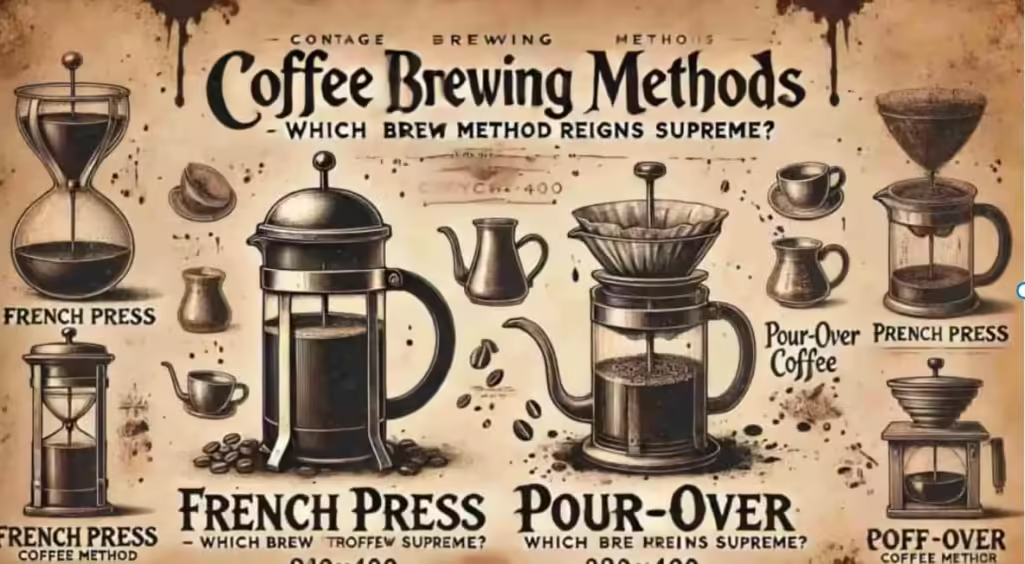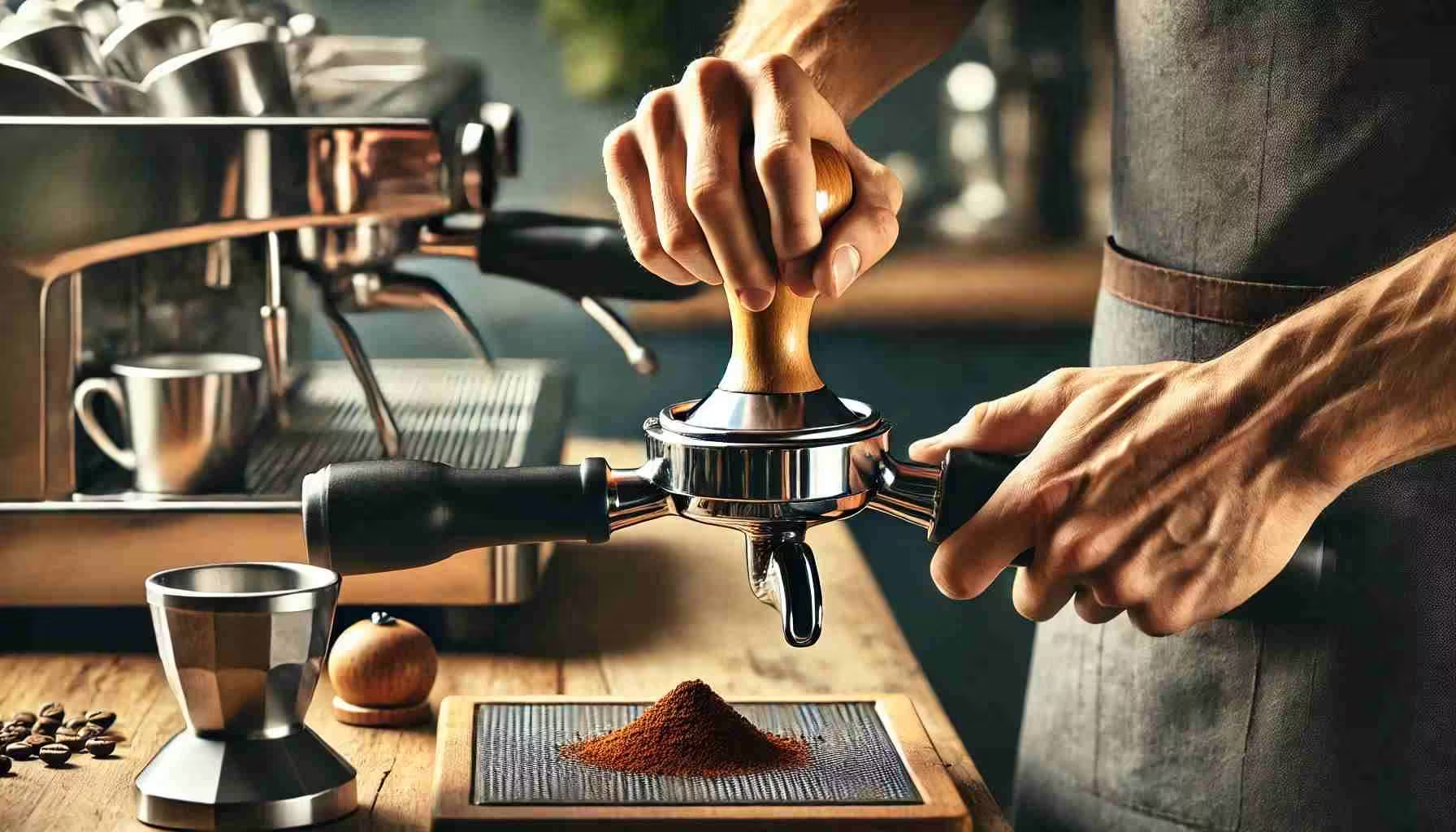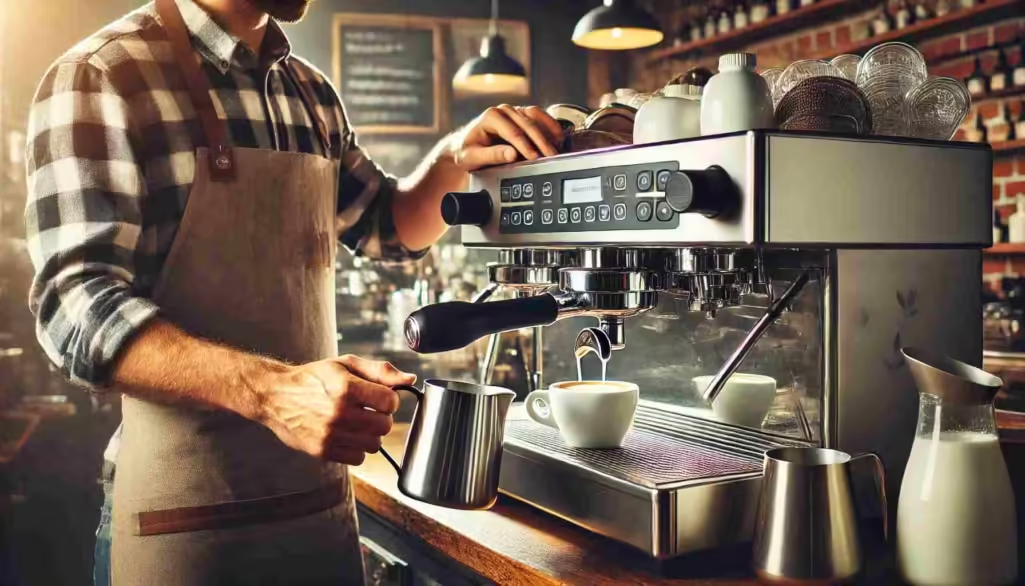
French Press vs Pour-Over: Which Brew Wins? (Comparison)
Choosing between French press and pour-over coffee methods is akin to selecting between two cherished friends, each bringing their own unique qualities to the table. Both methods deliver a delightful cup of coffee, yet they differ significantly in technique and the resulting brew.Whether you lean towards French press or pour-over, each method offers a distinct path to coffee satisfaction, filled with rich flavors and unique brewing experiences. Let's explore the varied landscapes of these popular brewing methods.Origins of Brewing Methods
The French press method was conceived in the mid-19th century by French innovator Mayer and Swiss inventor Delforge. Their design, known as the “cafetière,” features a cylindrical vessel equipped with a plunger and a mesh filter, celebrated across Europe for producing a robust, full-flavored beverage.
On the other hand, the pour-over method was pioneered by Melitta Bentz in Germany during the early 20th century. Dissatisfied with the bitterness of traditional brews, Bentz introduced a ceramic cone with a paper filter in 1908, allowing precise control over the brewing process for a cleaner, more flavorful cup.
Over the years, both brewing methods have carved their niches within coffee culture. The French press is often synonymous with leisurely mornings and cozy settings, renowned for its strong flavor profile. Conversely, pour-over is favored by those who appreciate nuanced flavors and meticulous brewing techniques.
Both methods continue to enchant coffee enthusiasts around the globe, each bringing a rich tradition of innovation and a pursuit of the perfect brew.
Whether you enjoy the robust intensity of the French press or the subtle elegance of pour-over, these brewing traditions stand as enduring symbols of coffee’s everlasting appeal.
Also Read: frappuccino vs latte: What’s Better? [Taste Test]Exploring the French Press Coffee Method
Embark on a journey with the French press, a beloved brewing method known for its robust flavors. The French press method involves immersing coarsely ground coffee beans in hot water and then separating the brew through a fine mesh filter. Here’s why many coffee lovers prefer the French press:
Rich, Bold Flavors
The French press method allows coffee grounds to fully impart their flavors, resulting in a rich, full-bodied beverage. This technique preserves the natural oils and sediments, enhancing the coffee’s overall taste and texture.
Customizable Strength
The French press offers control over the brewing process. You can adjust the water temperature and brewing duration to tailor the coffee’s strength to your preference, making it stronger or milder as desired.
Simplicity and Convenience
French presses are straightforward and require minimal equipment, making them ideal for use in various settings, including camping or relaxing Sunday mornings. They do not need electricity, adding to their convenience.
However, it’s worth mentioning that French press coffee may sometimes have a bitter taste. This can occur if the finer particles or ‘grit’ escape through the mesh filter, or if the coffee is over-extracted, leading to a sharper flavor. Proper timing is crucial to avoid these pitfalls.

Understanding the Pour-Over Coffee Brewing Method
Let’s explore the pour-over method, renowned for its precision in extracting the subtle flavors and aromas from high-quality coffee beans. In this method, hot water is carefully poured over a bed of finely ground coffee that’s held in a filter. Here’s what makes the pour-over a favorite for many:
Precision and Clarity in Flavor
The meticulous pouring in the pour-over method ensures that the coffee grounds are evenly saturated, yielding a clean, crisp cup with distinct flavors. This slow infusion brings out a sharp and refined taste.
Tailored Brewing Experience
Pour-over brewing offers meticulous control over various aspects such as water temperature, pouring pace, and blooming duration. This allows enthusiasts to customize the extraction process to enhance the coffee’s best qualities.
A Ritual of Elegance
Many regard the pour-over brewing process as a serene, almost sacred ritual. It is particularly appreciated by those who value the craftsmanship and meticulous attention required in this brewing style.
However, mastering the pour-over technique requires more time and practice compared to other methods. It also demands specific equipment, like a gooseneck kettle and a pour-over dripper, which might not be as convenient for brewing on the move.

Choosing Your Ideal Coffee Brewing Method
Having explored the distinct characteristics of both French press and pour-over methods, it’s time to determine which brewing style suits you best. The choice largely depends on personal preference and lifestyle—there is no universal answer.
If you prefer a strong, flavorful cup with minimal fuss, the French press might be perfect for you. On the other hand, if you appreciate the nuances of coffee and enjoy a slow brewing process, the pour-over method could be your go-to.
Ultimately, the key is to experiment with each method and enjoy every cup. Whether you’re drawn to the pour-over or remain loyal to the French press, both methods celebrate coffee in their unique ways.
Final Thoughts
In the classic debate between French press and pour-over, both offer pathways to coffee bliss. Embrace your preferred method and relish each sip of this beloved beverage. Enjoy your brewing journey!
FAQs: French Press vs Pour-Over: Which Brew Wins? (Comparison)
Which is better: French press or pour-over coffee?
The choice depends on your flavor preference. If you enjoy bold and rich coffee, a French press is ideal. For those who like the taste of filtered coffee or want to start a new brewing ritual, a pour-over coffee maker is recommended.
Is pour-over coffee truly superior?
Pour-over brewing typically yields a more robust and flavorful cup than traditional drip coffee, due to the controlled water flow that evenly saturates the coffee grounds.
Is a French press necessary?
Using an Espro French Press offers multiple advantages, making it a favored choice for coffee aficionados. It delivers a rich, full-bodied flavor, is simple to use, environmentally friendly, and highly versatile.
Is daily consumption of French press coffee safe?
If you drink unfiltered, pressed coffee daily, it’s wise to monitor your cholesterol, specifically your LDL levels. Limit your intake to no more than four cups daily.
What are the drawbacks of pour-over coffee?
The pour-over method is significantly more complex. It requires heating water, preparing the filter and grounds, and pouring the water consistently. This method demands active involvement, making it less suitable for those with limited time.